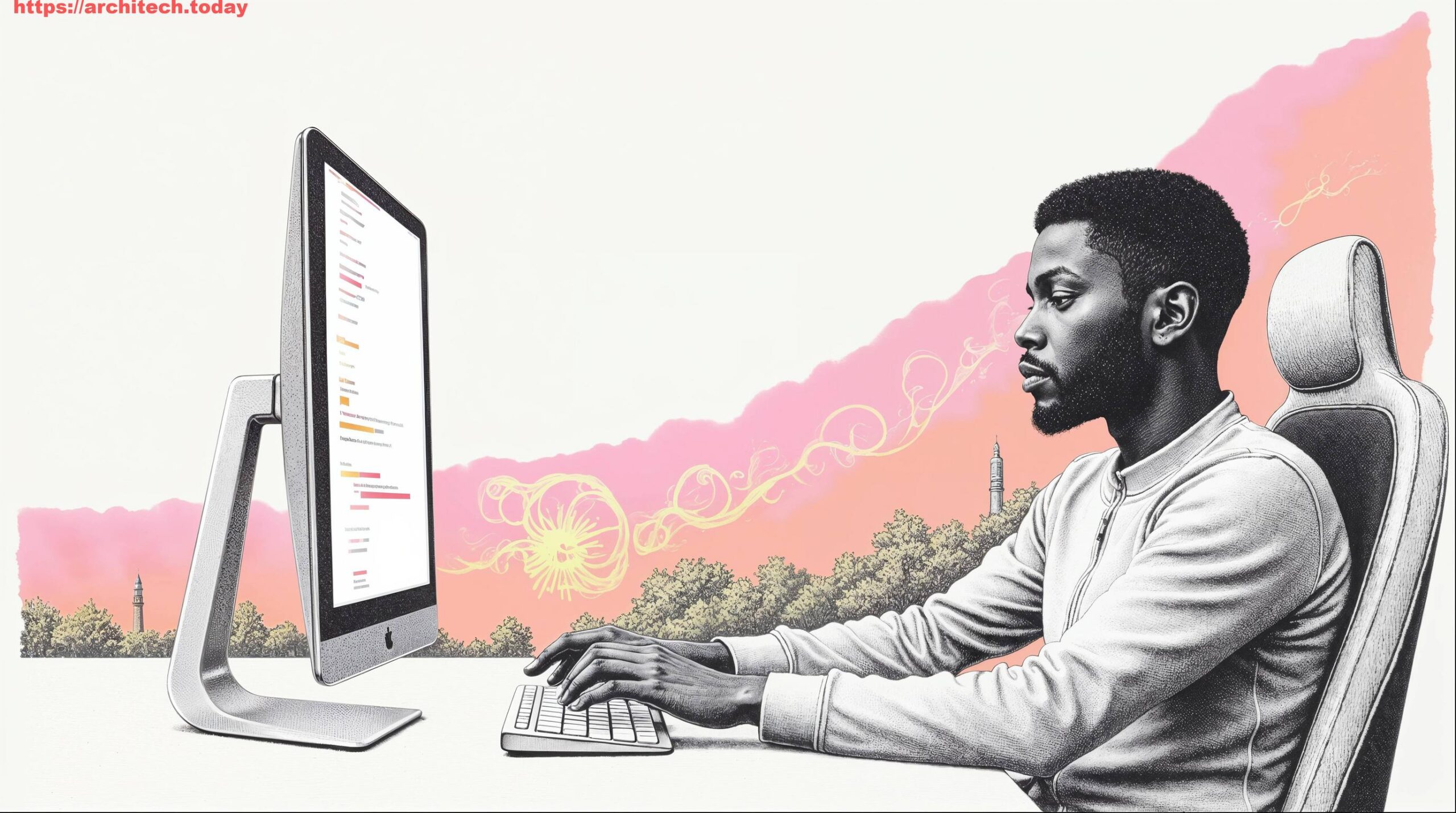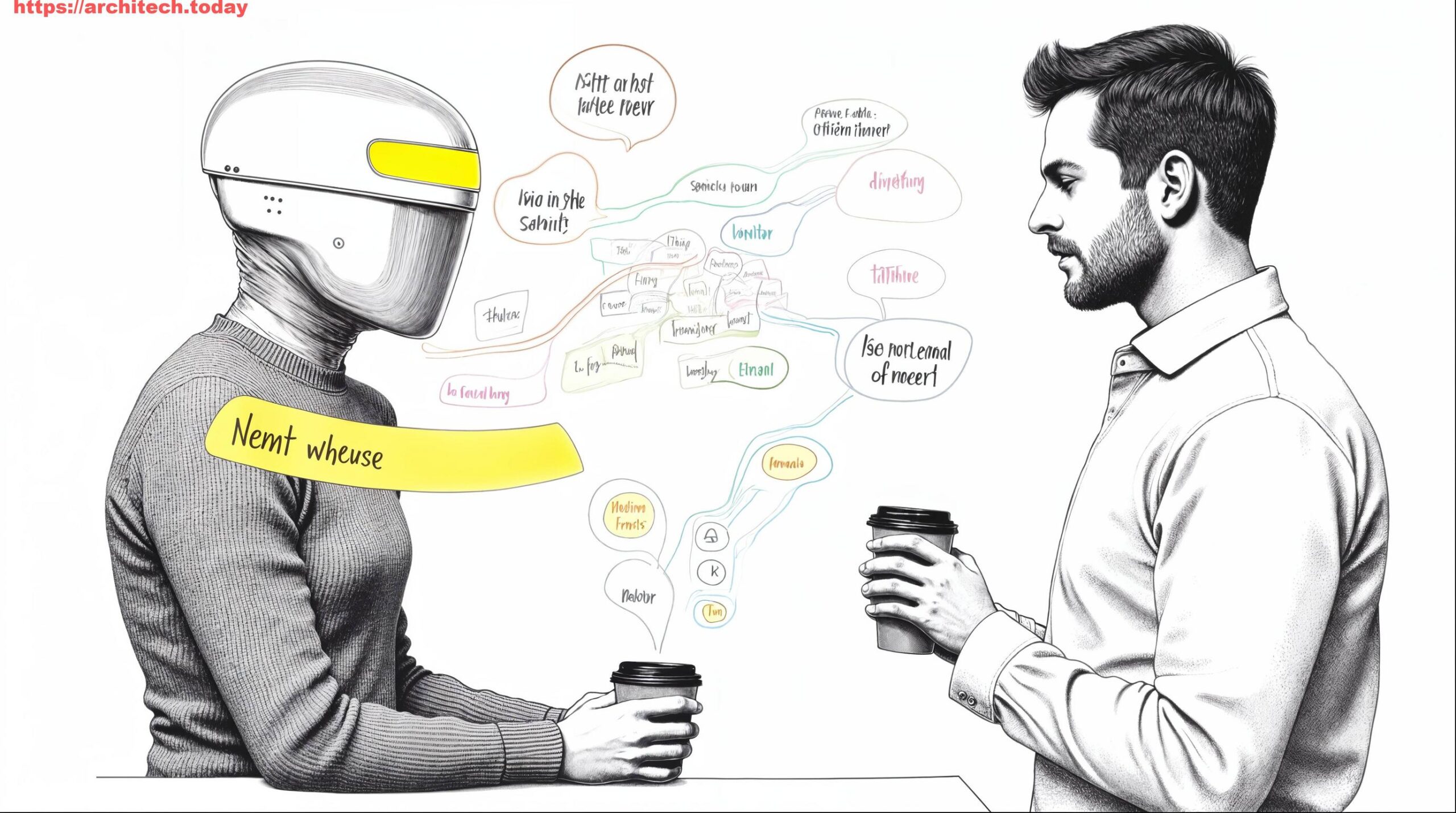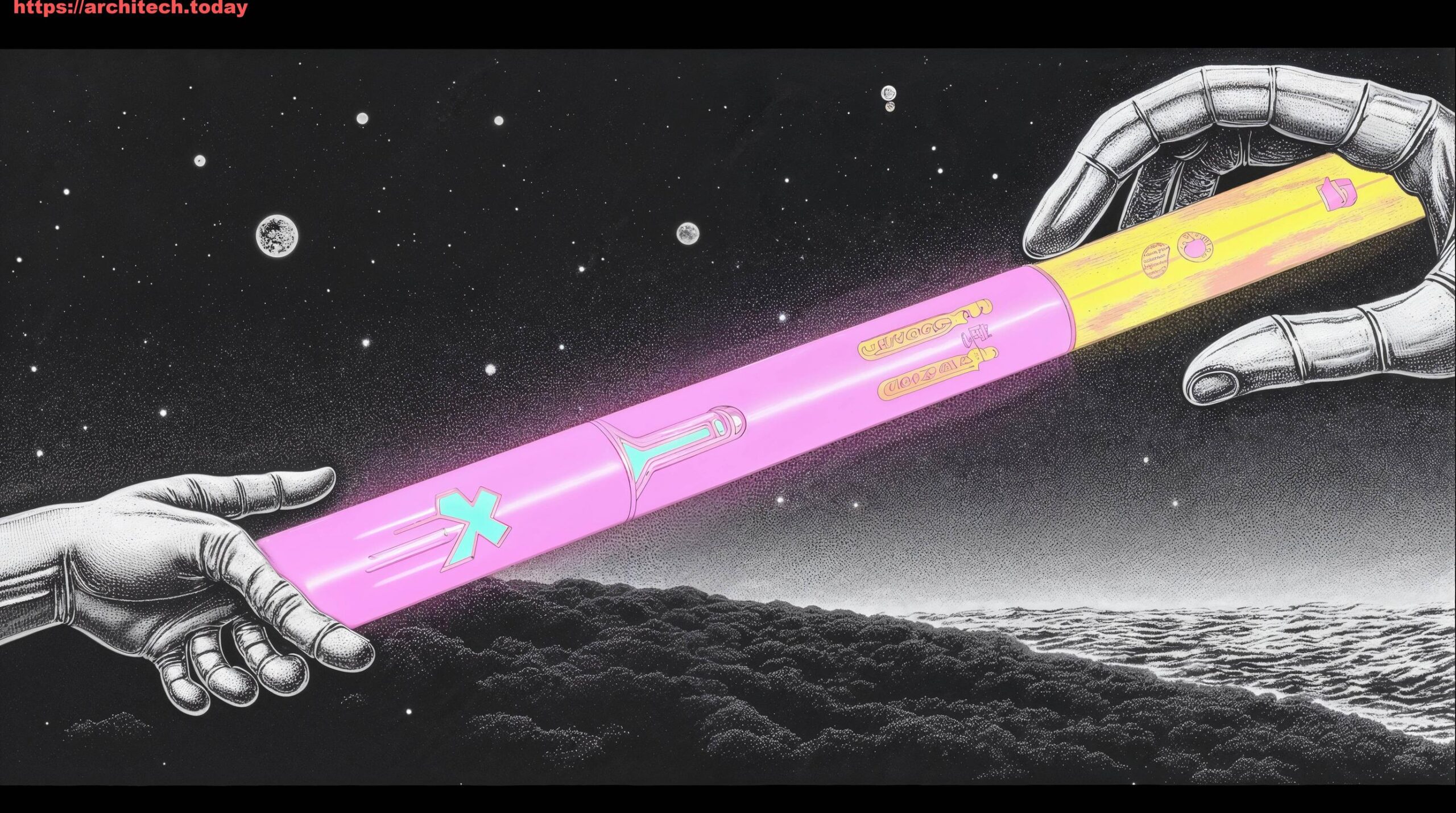Imagine it’s 2025, and your AI assistant has already outlined your project plan over coffee, prioritized your feature backlog with surgical precision, and even flagged potential stakeholder conflicts before you’ve even opened your laptop. Sound like science fiction? Not entirely. We’re living in an era where the lines between human capability and artificial intelligence are blurring at an unprecedented pace, especially within the dynamic world of project management.
For project managers and business leaders, a pressing question looms large: In 2030, is your project manager a human, an AI, or a bit of both? This isn’t just a philosophical debate; it’s a critical inquiry into the very essence of a role that has traditionally hinged on human intuition, leadership, and a knack for navigating complex interpersonal dynamics. Will AI eventually automate so much that the project manager role changes drastically, or – dare we say – even disappears? Or will it merely become an indispensable co-pilot, elevating human PMs to new strategic heights?
The aim of this deep dive is not to fuel anxiety nor to paint an overly rosy, unrealistic picture of an AI utopia. Instead, it’s to provide a balanced, thought-provoking exploration of how artificial intelligence is reshaping – and will continue to reshape – project management. You’ll gain insights into the current capabilities of AI in PM, a visionary glimpse into its future potential, and perhaps most importantly, concrete guidance on how to future-proof your career by embracing AI as an ally, not an adversary. Spoiler alert: The rise of our robot overlords as project managers has been greatly exaggerated, but your role is undeniably set for a fascinating evolution. Let’s prepare for it.
The AI Tsunami: What AI Does in Project Management Today
Just a few years ago, the idea of AI actively participating in project management felt like a distant dream. Today, it’s a palpable reality. AI isn’t waiting in the wings; it’s already automating, optimizing, and transforming numerous facets of the project manager’s daily grind. Think of it as upgrading from a dial-up modem in a 5G world – the old ways simply can’t keep up with the demands of modern project complexities and speed.
Automating the Mundane, Elevating the Strategic
One of the most immediate impacts of AI has been in streamlining the repetitive, data-heavy tasks that traditionally consumed a significant portion of a project manager’s time. Consider scheduling: AI-powered tools can analyze countless variables – resource availability, dependencies, historical task completion times, even weather patterns for construction projects – to generate highly optimized project schedules in a fraction of the time it would take a human. This isn’t just about speed; it’s about creating schedules that are inherently more resilient and efficient, capable of dynamic adjustment as circumstances change.
Beyond scheduling, AI excels in predictive analytics. Project management software integrated with AI can now “learn” from past project data to identify patterns and predict potential risks long before they escalate. For instance, an AI might flag a specific task ‘at risk’ due to a team member’s historical performance on similar complex tasks, or identify a potential budget overrun based on current burn rates and projected costs. This proactive risk identification allows project managers to intervene early, mitigating issues before they become full-blown crises.
Data-Driven Decisions & Communication Simulation
Data analysis, once a laborious manual process, is now largely automated. AI can digest vast quantities of project data – progress reports, team communications, budget spreadsheets, stakeholder feedback – and distill it into actionable insights. A product manager, for example, can leverage AI to analyze user feedback and market trends, helping to prioritize features for a product backlog with greater precision and data-backed confidence. Similarly, a project manager might use AI to analyze team sentiment from communication channels, gaining an early warning about potential morale issues or conflicts.
Even communication is getting an AI assist. While not yet perfect, AI is increasingly capable of drafting routine project updates, summarizing meeting notes, and even simulating various communication styles to help PMs prepare for difficult conversations. Imagine an AI tool that analyzes a stakeholder’s past communication patterns and suggests optimal phrasing for a sensitive project update. While the human touch remains paramount, these tools provide valuable support, freeing PMs to focus on the nuanced art of genuine connection and persuasion.
Real-World Examples in Action
Leading project management platforms are already integrating these AI capabilities. Tools like Jira, Asana, and Monday.com are incorporating AI features for automated task assignment, intelligent recommendations for workflow optimization, and predictive insights into project health. Companies are leveraging AI to automate report generation, identify bottlenecks in supply chains, and even optimize resource allocation across multiple simultaneous projects. These are not futuristic concepts; they are current operational enhancements demonstrating how AI is already “doing” project management tasks, taking over the grunt work, and providing a powerful data-driven lens that was previously unimaginable.
Tomorrow’s Horizon: AI’s Potential in Project Management
If today’s AI in project management feels significant, tomorrow’s potential is nothing short of revolutionary. We’re moving beyond automation to true augmentation, where AI acts less like a tool and more like an intelligent partner. Picture a project status meeting in 2030:
“Good morning, team,” chirps ‘ProjectBot Alpha,’ a holographic interface projected onto the conference table. “Based on the latest sprint velocity and current resource availability, I’ve adjusted Sprint 4’s scope, re-prioritizing feature X based on predicted market demand fluctuations. I’ve also proactively scheduled a conflict resolution session between the engineering and marketing leads, as my sentiment analysis detected rising friction over the new UI – I’ve even drafted a mediation agenda.”
While a touch dramatic, this scenario highlights the trajectory of AI in PM. We’re heading towards an era where AI doesn’t just assist; it actively participates, anticipates, and even orchestrates. The vision includes fully autonomous agile sprints, run by bots that manage daily stand-ups, track progress, assign tasks, and even “learn” from sprint retrospectives to continuously improve future iterations. Imagine an AI not just predicting risks, but actively generating ‘what-if’ scenarios and recommending optimal strategies to navigate complex challenges.
AI as a Strategic “Co-Pilot”
The next generation of AI tools will move beyond predictive analytics to prescriptive analytics. Instead of just telling you ‘what will happen,’ they’ll suggest ‘what you should do.’ An AI might identify that a critical path task is behind schedule and not only inform the PM but also suggest rescheduling options, potential resource reallocations, and even draft an email to key stakeholders explaining the situation and proposed solution. This empowers project managers to make faster, more informed decisions, transforming them from reactive problem-solvers to proactive strategists.
Furthermore, AI will become adept at managing complex project portfolios. It will be able to analyze the strategic alignment of multiple projects, identify interdependencies across programs, and recommend optimal investment allocations based on organizational goals and market dynamics. For business leaders, this means unparalleled visibility and control, allowing for rapid strategic pivots in response to changing market conditions. The AI might even “speak” different organizational languages, translating technical jargon for executives and strategic imperatives for development teams, bridging communication gaps that often plague large organizations.
Opportunities and Potential Pitfalls
The opportunities are immense: faster project delivery, higher quality outcomes, optimized resource utilization, and significant cost savings. AI can handle the logistical heavy lifting, allowing human PMs to focus on innovation, strategic leadership, and stakeholder engagement – areas where human nuance is irreplaceable. This shift could usher in an era of hyper-efficient project execution, where projects are delivered with a precision and speed previously unimaginable.
However, it’s crucial to discuss the potential pitfalls. Over-reliance on AI could lead to a “black box” syndrome, where decisions are made without human understanding of the underlying logic. Ethical considerations – especially regarding data privacy and algorithmic bias – become paramount. If AI is trained on biased historical data, it could perpetuate or even amplify those biases in its project recommendations, leading to unfair resource allocation or inaccurate risk assessments. Ensuring transparency, accountability, and continuous human oversight will be critical to harnessing AI’s power responsibly.
Another challenge lies in the “AI hallucinations” – instances where AI generates plausible-sounding but incorrect or nonsensical information. While improving, this risk underscores the need for human validation. Imagine an AI generating a critical project report with subtly incorrect figures or assumptions; without human review, this could lead to disastrous decisions. The future isn’t about “set it and forget it” with AI; it’s about intelligent collaboration.
The Indispensable Human Element: What AI Can’t Replicate
Despite the awe-inspiring trajectory of AI, there’s a fundamental truth that offers immense reassurance to project managers: not everything can be automated. There are uniquely human skills that remain stubbornly beyond the grasp of even the most sophisticated algorithms. These aren’t just “soft skills”; they are the “power skills” that define exceptional project leadership and are utterly indispensable for navigating the complexities of human-centric initiatives.
Leadership, Empathy, and Creativity
Consider leadership. While an AI can optimize a schedule, it cannot inspire a demotivated team, mediate a heated conflict with genuine understanding, or rally disparate individuals around a shared vision. Leadership requires emotional intelligence – the ability to perceive, understand, and manage emotions, both one’s own and others’. An AI can detect sentiment, but it cannot genuinely empathize with a struggling team member, offer a comforting word, or build the deep trust essential for high-performing teams.
Empathy is another critical differentiator. Projects are, at their core, human endeavors. They involve individuals with diverse backgrounds, motivations, and sometimes, conflicting agendas. An AI can process data points on individual performance, but it cannot understand the unspoken anxieties of a team member juggling personal challenges with project deadlines, or truly appreciate the political sensitivities that might influence a key stakeholder’s decision. Human project managers excel at reading between the lines, picking up on non-verbal cues, and navigating the “people politics” that are often more challenging than the technical hurdles.
Creativity, too, remains a uniquely human forte. While AI can generate novel ideas based on existing data patterns (think generative AI producing content or designs), true innovation often stems from conceptual leaps, intuitive insights, and the ability to connect seemingly disparate concepts in groundbreaking ways. When a project hits an unforeseen roadblock, it’s the human PM who thinks outside the box, devises an unconventional solution, or creatively reframes the problem to unlock new possibilities. AI can optimize known paths; humans can forge entirely new ones.
Negotiation, Motivation, and Vision
Effective negotiation is an art form rooted in human psychology, trust-building, and the ability to understand unspoken needs. An AI can identify optimal outcomes based on predefined parameters, but it cannot build rapport, read a room, or strategically concede a minor point to secure a major win in a complex negotiation with a difficult vendor or a demanding client. These interactions are nuanced dances of persuasion, compromise, and relationship management that require human finesse.
Motivation is another area where AI falls short. While AI can track performance and even “gamify” tasks, it cannot truly inspire a team to go the extra mile, instill a sense of shared purpose, or celebrate successes with genuine warmth. Human PMs build culture, provide mentorship, and foster an environment where team members feel valued and empowered. These intrinsic motivators are far more powerful than any extrinsic reward an algorithm might suggest.
Finally, vision. AI can extrapolate trends and optimize for predefined goals, but it cannot articulate a compelling future vision that transcends current metrics. It cannot “dream” the next disruptive product or pivot a company’s strategy based on a gut feeling about an emerging market. Strategic thinking at its highest level involves foresight, intuition, and the ability to connect dots in ways that only a human mind, with its vast and varied experiences, can. The CEO of a company isn’t asking an AI for the next big idea; they’re relying on human leaders to envision and articulate it.
These human strengths – leadership, empathy, creativity, nuanced negotiation, genuine motivation, and visionary strategic thinking – are the bedrock of successful project delivery. They are the elements that allow projects to navigate ambiguity, respond to unforeseen human elements, and ultimately, deliver value that goes beyond mere task completion. As AI handles the “what” and the “how” of project management, humans will increasingly own the “why” and the “who.”
The Evolved PM: Strategic Orchestrator, Chief Motivator
Given AI’s growing capabilities and the enduring power of human skills, the project manager role isn’t disappearing; it’s undergoing a profound transformation. The PM of tomorrow will be less of a taskmaster buried in Gantt charts and more of a strategic orchestrator, a “chief motivator,” and an ambassador for human collaboration in an increasingly automated world. This evolution isn’t a demotion; it’s a promotion to a more impactful and intellectually stimulating role.
From “Doer” to “Diver” (Deep Integrator of Value)
The traditional PM often spent countless hours on administrative tasks: updating spreadsheets, chasing status reports, meticulously adjusting timelines. In the AI-augmented future, these “grunt work” activities will largely be automated. This frees the human project manager to focus on higher-value activities – the “deep integration of value.” They will spend more time understanding complex stakeholder needs, mediating nuanced conflicts, fostering team cohesion, and ensuring the project’s strategic alignment with overarching business objectives. Instead of merely managing tasks, they’ll manage outcomes and relationships.
Consider a product manager. In the past, much of their time might have been spent manually compiling user feedback, analyzing market trends, and defining detailed requirements. With AI, these data-heavy tasks are streamlined. The PM can then focus on interpreting the AI’s insights, engaging in deeper conversations with customers to uncover latent needs, collaborating with design teams to spark truly innovative solutions, and strategizing how a product can deliver maximum impact. They become the “why” behind the “what,” ensuring that technical execution serves a meaningful human purpose.
The “Chief Motivator” and “Human Connector”
As AI handles scheduling, resource allocation, and risk prediction, the human PM’s role shifts significantly towards fostering a high-performing, motivated team. They become the “chief motivator” – understanding team dynamics, identifying signs of burnout, celebrating successes, and providing personalized coaching and mentorship. They will be the human glue that holds diverse teams together, especially in increasingly distributed and multicultural work environments. This involves not just managing performance but nurturing potential and building resilience.
Moreover, the PM will evolve into a “human connector.” While AI can draft communications, it cannot build the critical bridges between departments, negotiate delicate political landscapes, or passionately advocate for a project’s value to a skeptical executive board. These are fundamentally human acts of persuasion, relationship-building, and influence. The PM will be the primary liaison between the technical execution world and the strategic business world, ensuring seamless flow of information and alignment of expectations.
Navigating Ambiguity and Driving Innovation
AI thrives on structured data and clear rules. Real-world projects, especially innovative ones, are often rife with ambiguity, unforeseen challenges, and shifting requirements. This is where the human PM shines. They are adept at navigating uncertainty, making decisions with incomplete information, and adapting strategies on the fly. They become the “sense-maker” in chaotic environments, translating complex situations into actionable plans. This ability to lead through ambiguity and pivot effectively is an invaluable human skill that AI, for all its power, cannot replicate.
Furthermore, as AI handles the “how” of execution, human PMs will have more bandwidth to drive innovation. They can focus on exploring new technologies, fostering a culture of experimentation, and challenging the status quo. They become catalysts for change, guiding their teams not just to complete tasks, but to discover better, more innovative ways of working and delivering value. The PM’s role transforms into one of strategic foresight, cultural leadership, and relentless pursuit of meaningful impact.
This evolved role is not just about leveraging AI tools; it’s about consciously shifting focus from tactical oversight to strategic orchestration. It’s about moving from being a process enforcer to a vision enabler, a problem-solver to an opportunity creator, and most importantly, a task manager to a human leader.
Future-Proofing Your PM Career in an AI World
The message for project managers is clear: adaptation is not optional; it’s existential. But this isn’t a call for alarm; it’s a powerful invitation to growth. The future-proof project manager will be one who strategically embraces AI, hones uniquely human skills, and continuously evolves. This means seeing AI not as a threat, but as the ultimate force multiplier, a tool that allows you to ascend to a higher plane of contribution.
Embrace AI: Your New Power Tool
First and foremost, get comfortable with AI tools. Don’t just acknowledge their existence; actively learn how to leverage them. Experiment with AI-powered scheduling software, predictive analytics platforms, and communication aids. Understand their strengths and limitations. The PM who effectively “pilots” these AI co-pilots will be significantly more efficient and insightful than one who relies solely on traditional methods. Think of it as mastering a new, incredibly powerful project management suite – one that can literally think alongside you.
Attend webinars, take online courses, and read industry reports on AI in project management. Understand the underlying principles of machine learning and how it applies to project data. The more fluent you are in “AI-speak,” the better equipped you’ll be to implement and manage AI solutions effectively. Being an early adopter, or at least an informed adopter, positions you as a valuable asset to your organization, demonstrating your forward-thinking approach to project leadership.
Hone Your Superpowers: Uniquely Human Skills
While AI handles the data and the predictable, your value will increasingly reside in the unpredictable, the nuanced, and the human. Double down on your “superpowers” – the skills AI cannot replicate:
- Strategic Thinking & Vision: Move beyond tactical execution. Understand the “why” behind every project. How does it align with organizational goals? How does it create value? Practice foresight and the ability to articulate a compelling vision that inspires action.
- Emotional Intelligence & Empathy: Cultivate your ability to understand, manage, and respond to emotions. This is crucial for team cohesion, stakeholder management, and conflict resolution. Strong interpersonal skills will distinguish you.
- Complex Problem-Solving & Critical Thinking: AI can identify problems, but humans excel at solving ill-defined, ambiguous, or novel problems that require creative, multi-faceted solutions. Develop your capacity for critical analysis and innovative thinking.
- Communication & Influence: While AI can draft, you must master the art of persuasive communication, active listening, and building rapport. Your ability to negotiate, motivate, and influence will be paramount.
- Leadership & Mentorship: Focus on inspiring and empowering your team. Become a mentor, a coach, and a facilitator of growth. Your role as a human leader will become even more pronounced as AI manages the operational aspects.
Industry reports from organizations like the Project Management Institute (PMI) and Gartner consistently emphasize the growing importance of these human-centric “power skills” for future project leaders. They are not just desirable – they are becoming essential differentiators in an AI-driven landscape.
Adopt a “Growth Mindset” and Be Adaptable
The world of work is in constant flux, and the pace of change will only accelerate. Develop a “growth mindset” – the belief that your abilities can be developed through dedication and hard work. Be curious, embrace continuous learning, and be prepared to unlearn old methods as new ones emerge. The most successful project managers will be those who are agile in their own careers, willing to pivot and adapt as the landscape shifts.
In essence, the future of project management isn’t about humans versus machines; it’s about humans working smarter, leveraging powerful machine intelligence to amplify their impact. By mastering both the new AI tools and your timeless human capabilities, you won’t just survive the AI revolution; you’ll lead it.
Conclusion: Your Role – Evolved, Not Eliminated
The question of whether AI will take over project management is less about “if” and more about “how” it will reshape the landscape. As we’ve explored, AI is already a formidable force, capable of automating complex tasks from scheduling to predictive analytics, freeing up valuable time and providing unprecedented insights. Its future potential promises even more sophisticated autonomous capabilities, potentially running entire agile sprints or managing vast project portfolios with minimal human intervention. This shift marks a significant evolution from the traditional task-oriented project manager.
However, the narrative isn’t one of human obsolescence. Far from it. The core of project success will always hinge on uniquely human strengths: the ability to inspire, to empathize, to negotiate with nuance, to innovate creatively, and to lead with vision in the face of ambiguity. AI excels at processing data and optimizing known parameters; it cannot replicate the complex tapestry of human relationships, the spark of genuine creativity, or the profound capacity for strategic foresight that defines true leadership. The “dial-up modem” PM may struggle, but the “5G” PM will thrive.
The project manager of tomorrow will transition from a mere taskmaster to a strategic orchestrator, a chief motivator, and an indispensable human connector. Your role will be elevated, focusing on the “why” and the “who” of projects, while AI handles much of the “what” and the “how.” This evolution isn’t a threat; it’s an unprecedented opportunity to shed the administrative burden and focus on the high-value activities that truly drive success and impact.
To future-proof your career, the path is clear: embrace AI as your most powerful tool, diligently cultivate your uniquely human “superpowers” – emotional intelligence, strategic thinking, nuanced communication – and commit to a lifelong journey of adaptation and learning. The future of project management isn’t a battle between humans and machines; it’s a powerful partnership. Are you ready to become the strategic leader and human orchestrator of tomorrow’s AI-powered projects?








No comment yet, add your voice below!